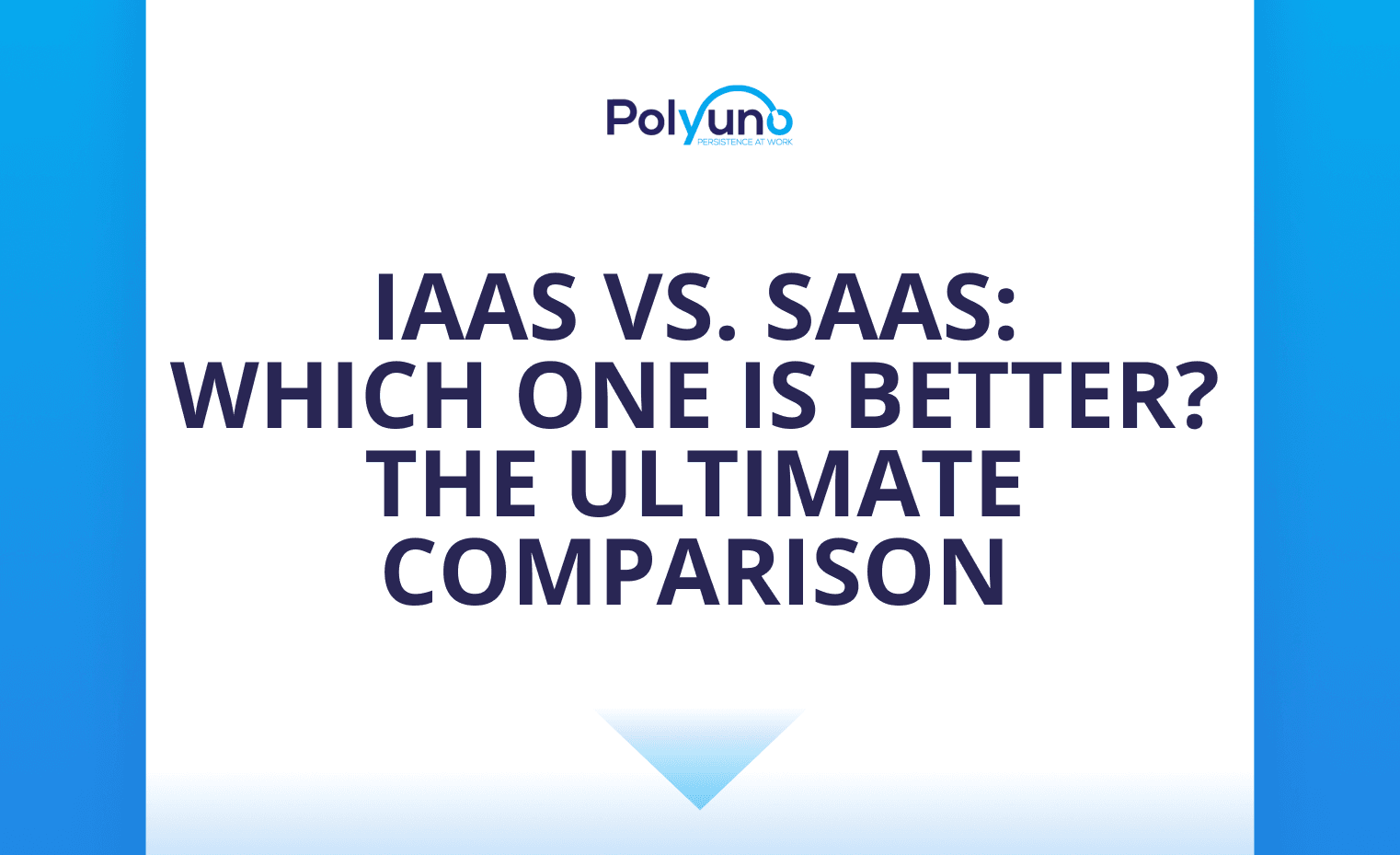
Did you know that by the year 2020, the cloud computing industry has increased up to $320 billion? That is $252 billion more than what it was in 2016. And the number only keeps growing as more and more companies rely on cloud computing services to run their business activities.
Cloud computing is a model for enabling businesses with on-demand network access to different platforms, applications, IT infrastructures, and much more through the internet. As a result, it simplifies the way companies run and manage their business operations. And over the years, it has reshaped the way products get designed, manufactured, and marketed in the industry.
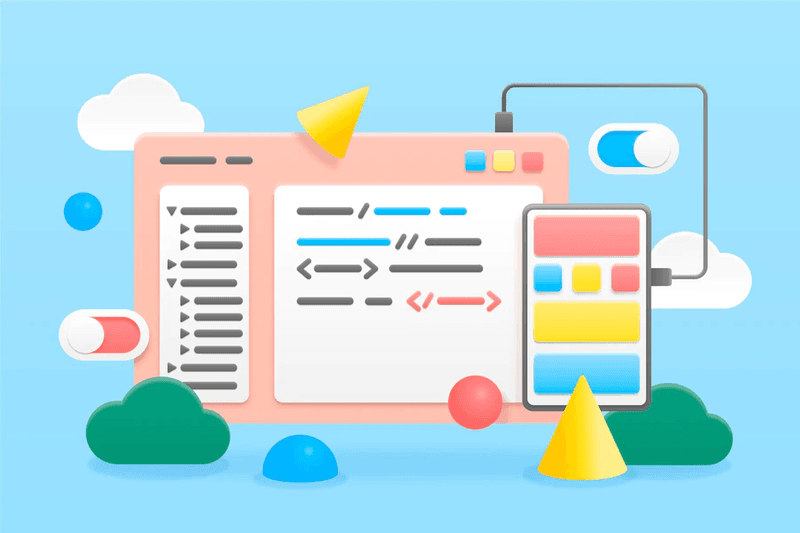
When it comes to cloud computing, there is more than one model available in the market, one for each type of business needs. And if your work requires you to use the computer regularly, you are already using one of these as-a-service models.
However, there are only three that you need to know about the most that goes by the name cloud computing stack. These being SaaS, PaaS, IaaS. Why? Because different applications run on various platforms, you need to determine which cloud model produces the most results for your company.
In this article, we will go in-depth with two of the most popular models, Software as a Service and Infrastructure as a Service. So, if you are planning on getting IaaS or SaaS for your company, you must understand the difference between them.
Keep on reading to learn the following aspects,
IaaS, or Infrastructure as a Service, in its essence, is an alternative to traditional on-premise data centers. It is a pool of automated and scalable infrastructures that act as a pay-as-you-go service for businesses to run their applications.
In simple words, IaaS is an on-demand cloud-based service that provides and manages the user's computing resources. So, anything from developing and maintaining the software and server to giving access to storage and networking, IaaS does it all and more. Think of AWS, Google Cloud, Azure, or Oracle, all IaaS models providing computing resources to businesses worldwide. And while Azure and AWS are the top dogs in the industry, there are other relatively minor companies like IBM, OpenStack, GoGrid, and much more.
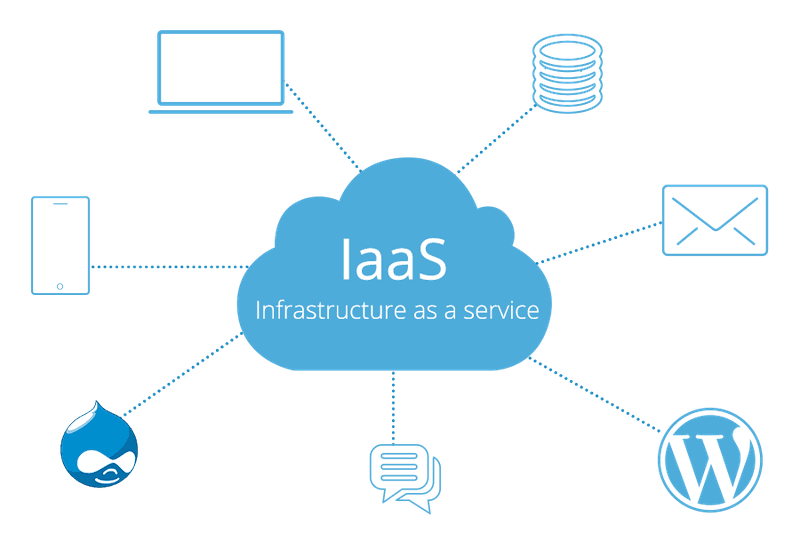
Try to think of IaaS as a foundation for transitioning from an on-premise platform to a cloud. So, if you were to opt for IaaS for your business, you would purchase the software from them on a subscription basis first. And then, they will host the software or server for you and manage the system so you can run your application. And while you will have control over monitoring your system, all the heavy work will be done by the vendors.
With IaaS, you not only get to build your software, server, and applications but have control over it as well. So, you can avoid having to manage your infrastructures on-premise. By doing this, you are not only freeing yourself from the added inconvenience of maintaining hardware, data storage, or networking but getting more time to strategize for your marketing campaigns better.
When it comes to cloud computing models, SaaS, or Software as a Service, is one of the most popular businesses worldwide. It is an on-demand software distribution model used by corporations to host their applications to make their services available to the end-users.
So, SaaS is a hosting platform where software or application vendors would come in contact with cloud providers and host their applications. To put it simply, if you were to transition from an on-premise or physical platform to a cloud platform and host your services online, you would host your applications through a cloud vendor on a pay-as-you-go basis.
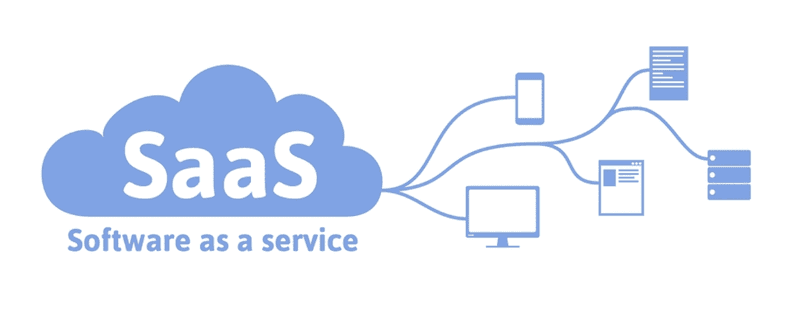
Remember Netflix and Spotify? They are also a part of the SaaS model. Apart from that, there is Cisco, WebEx, Salesforce, Slack, and much more. So, whether it be products for providing entertainment services or IT solutions, SaaS has it all. And in some cases, if the software vendor is a large enough organization, they can be their cloud provider.
In the case of the SaaS model, the service providers are responsible for doing almost all the work, from managing the storage to updating the software. And with SaaS, you can skip the hassle of purchasing and issuing licenses to operating systems and CRMs and have the vendors manage everything for you. And since you are only paying for the services you need, you also save a lot of money in the process.

The first and the most prominent factor differentiating IaaS from SaaS is its model type. That is to say, how they are both built and work as different cloud-based services to the users.
On one side, you have SaaS that does everything for you while you can enjoy everything on a pay-as-you-go basis. You are not responsible for the maintenance of the applications, software, storage system, etc. So, you can provide your customers with services while a third party hosts your application online. However, this gives you less control over your system.
On the other side, you have IaaS, where you will still be responsible for some work. Here, the vendors will take care of managing and updating your computing resources, such as your software, hardware, storage, and much more. And you will be responsible for ensuring what runs on the operating system.
With IaaS, you get access to API-based applications, which increases your overall productivity and efficiency in running the applications. Not just that, it lowers your cost since API can significantly decrease your developmental costs. That is how IaaS ensures that you are spending less instead of licensing software in bulk every time and only paying for the services that you require.
IaaS stands for centralization, standardization, and automation. So, it streamlines the entire developmental process while causing you to spend less and helps increase efficiency. And since you are more in control of what runs on your operating system, you are in control of integrating customized solutions within your system.
Moving on to SaaS, we see how we get solutions like CRM, entertainment, healthcare, email collaboration, and much more. And all this without having to shower more money because you only pay on a subscription basis and for the solutions you require. So, if you needed to host your entertainment-based application, you would only be paying for the maintenance and development of that app.
SaaS streamlines the entire process, where you can enjoy the solutions you paid for and not manage or update your computing resources. So, it is ideal for small businesses that lack the tools needed to develop their application and need a platform to host it. Apart from that, SaaS solutions are highly scalable and more straightforward to set up, so you can easily integrate updates within the system to increase user experience.
The services offered by IaaS are on an on-demand pay-as-you-go-basis. These services or solutions include providing you with all the tools and resources to host and build your application infrastructure. Whether it be networking, storage solutions, giving access to API or GUI-based solutions, or hardware maintenance, IaaS provides users with all the management and maintenance solutions for running an application. It also enables renting out computing resources.
On the other side, SaaS enables you access to a wide range of applications ranging from purely entertainment-based to technological solutions. These apps are CRM-based, so they do not comprise a complex interface and are easily adaptable as per liking.
SaaS has one of the largest markets for other cloud models available in the market. And while IaaS may not be as large of a market as SaaS yet, it has a greater growth rate than SaaS. With a growth rate of 89%, researchers believe that the market of IaaS may quickly surpass that of SaaS. You should know the differences and what to choose instead of getting swayed away by the numbers.
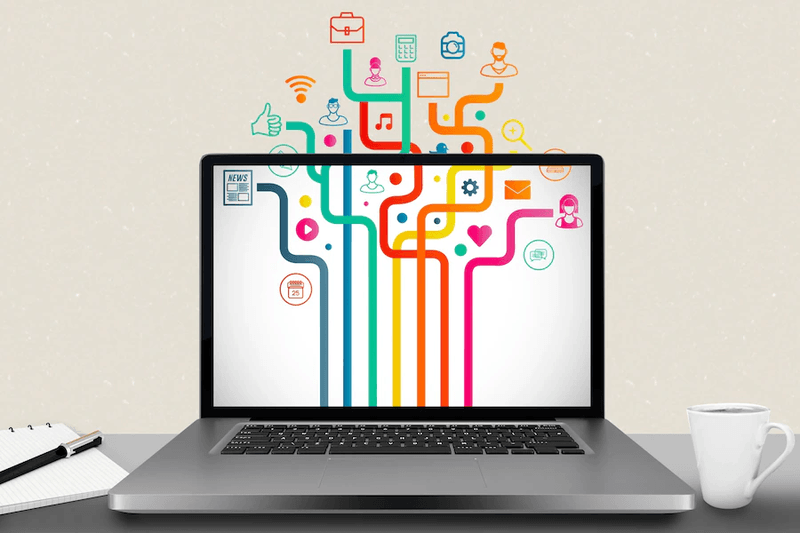
When it comes to SaaS, you have more flexibility and peace of mind that your systems are getting updated and managed regularly to provide your users with the best consumer experience. So, if you need a service that streamlines and does not cause your system to have downtime, you should opt for a service like SaaS.
However, be mindful that SaaS carries the threat of security breach since the entire system is off-premise. Moreover, customizations and integrating newer features can be complicated since some SaaS applications may not have those features to adjust to the modifications.
Next, when it comes to IaaS, unlike SaaS, it is a lot easier to integrate modifications within your system to scale your application. Since there is a range of solutions offered by IaaS, you can opt for any one of them depending on your budget and pay-as-you-go. Thus, you have more control over your system and its runtime.
That said, there are similar security threats as you go from being an on-premise platform to an off-premise. Apart from that, you may want to check your system before you make the decision if it is adaptable to go from being a physical infrastructure to a cloud-based one.
Today, businesses are shifting from on-premise to cloud-based. Why? Because it allows them to conduct their businesses online and have their infrastructure managed by third-party hosting services. It streamlines the process for them so they can achieve greater efficiency. And what company wouldn't want that to happen?
However, with so many models available in the industry, it can be daunting for someone to choose one between them. That is why you need to have a proper understanding of how each of them works in order to make an informed decision.
Confused about which model you should go for? Then, you can definitely opt for PolyUno. PolyUno is a full-stack agency providing solutions regarding software, web development, SaaS, SEO, UI/UX design, and many more to transform your digital journey.